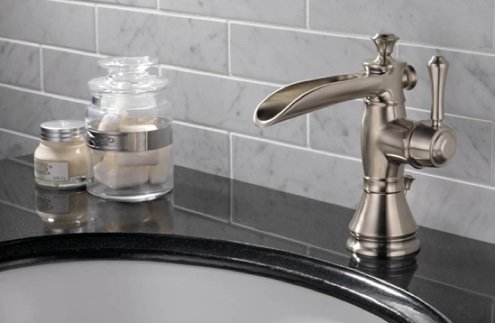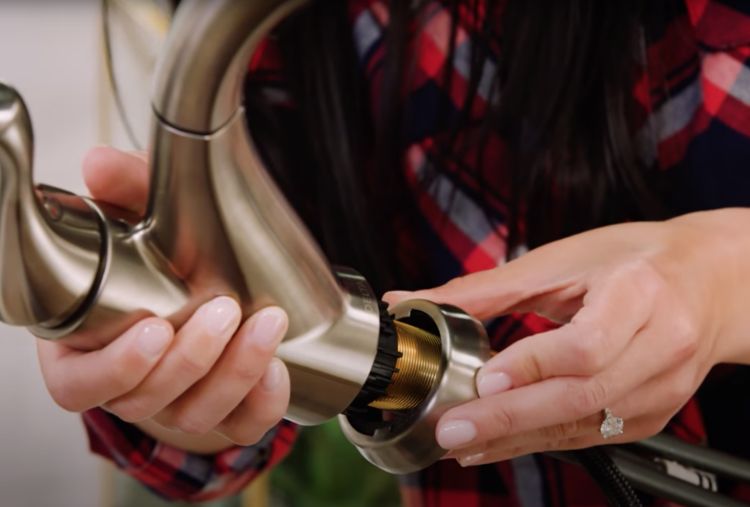When It's Necessary to Resolve a Leaking Faucet
When It's Necessary to Resolve a Leaking Faucet
Blog Article
What are your thoughts on How to Fix a Dripping or Leaky Faucet ?

Dripping taps could appear like a minor aggravation, but their impact goes beyond simply the inconvenience of the sound. From drainage to sustaining unneeded monetary costs and health and wellness dangers, neglecting a leaking faucet can cause numerous consequences. In this article, we'll look into why it's vital to resolve this typical household problem promptly and efficiently.
Waste of Water
Environmental Impact
Leaking faucets add dramatically to water wastage. According to the Epa (EPA), a single faucet dripping at one drip per secondly can throw away more than 3,000 gallons of water per year. This not only strains water sources however also influences environments and wild animals based on them.
Step-by-Step Overview to Dealing With a Dripping Faucet
Tools Required
Prior to attempting to deal with a leaking faucet, gather the required tools, consisting of an adjustable wrench, screwdrivers, substitute parts (such as washers or cartridges), and plumber's tape.
Common Faucet Issues and Their Solutions
Recognize the kind of tap and the particular issue triggering the drip. Typical issues include damaged washing machines, corroded shutoff seats, or faulty O-rings. Describe maker instructions or on-line tutorials for step-by-step support on fixings.
Financial Costs
Boosted Water Costs
Beyond the ecological impact, leaking faucets can inflate water expenses considerably. The gathered wastefulness with time converts right into greater energy expenses, which could have been avoided with prompt fixings.
Prospective Home Damages
Furthermore, prolonged trickling can result in harm to components and surfaces bordering the tap. Water buildup can trigger staining, corrosion, and even architectural problems if left neglected, causing additional repair work prices.
Health Problems
Mold and Mildew Development
The consistent visibility of dampness from a dripping tap creates an ideal environment for mold and mold development. These fungi not just compromise indoor air top quality but additionally present health risks, especially for individuals with respiratory system conditions or allergies.
Waterborne Illness
Stagnant water in leaking faucets can end up being a breeding ground for germs and various other pathogens, boosting the risk of waterborne diseases. Impurities such as Legionella bacteria thrive in stagnant water, potentially causing major diseases when ingested or breathed in.
Do it yourself vs. Specialist Repair service
Advantages and disadvantages of DIY Repair
While some may try to repair a leaking faucet themselves, DIY repair work feature their own collection of difficulties. Without appropriate understanding and devices, DIY efforts can exacerbate the concern or bring about insufficient repair work, prolonging the trouble.
Benefits of Working With a Professional Plumber
Hiring a professional plumber makes sure that the underlying reason for the leaking tap is attended to properly. Plumbing professionals have the experience and devices to diagnose and repair faucet issues efficiently, conserving time and lessening the danger of more damage.
Ecological Obligation
Private Payment to Preservation
Taking duty for taking care of dripping taps aligns with broader efforts toward water preservation and environmental sustainability. Every person's activities jointly make a substantial effect on protecting precious sources.
Lasting Living Practices
By focusing on punctual fixings and embracing water-saving habits, people add to sustainable living methods that profit both existing and future generations.
Preventive Measures
Normal Upkeep Tips
To stop trickling faucets, carry out regular upkeep such as cleansing aerators, evaluating for leaks, and changing damaged components without delay. Additionally, take into consideration installing water-saving tools or updating to extra efficient fixtures.
Significance of Prompt Services
Addressing leaking faucets as quickly as they're seen prevents further water wastefulness and potential damage, inevitably conserving both water and cash in the long run.
Effect On Home Worth
Understanding of Well-Maintained Property
Maintaining a residential or commercial property in good condition, including addressing maintenance problems like leaking faucets, enhances its regarded worth and desirability amongst potential customers or lessees.
Impact on Resale Value
Characteristics with well-kept plumbing fixtures, including faucets, command greater resale worths in the real estate market. Resolving leaking taps can contribute to a favorable impression during building examinations and arrangements.
Conclusion
Resolving a trickling faucet surpasses mere benefit; it's an important step toward conserving water, reducing economic costs, and safeguarding health and building. Whether via DIY repair services or professional support, taking action to fix dripping faucets is a little yet impactful way to promote accountable stewardship of resources and contribute to a much healthier, more lasting future.
How to Fix a Leaky Faucet: Step-by-Step Repair Guide
A leaky faucet may seem like a simple annoyance, but if it's not fixed promptly, that leak could cost hundreds to potentially thousands. From water damage to mold, mildew, and high water bills, even a tiny leak can be catastrophic if left unattended. Damage like this can even affect the overall value of your home, so it's important to take the right approach for leaky faucet repair. You may need the help of a plumber in some cases, but we've got a few tips you can try on how to fix a leaky faucet before calling the pros.
Four Faucet Types
When you're learning how to fix a leaky faucet, the first step is knowing what kind of faucet you're working with! There are four common types.
Cartridge Faucets
Cartridge faucets come in one- or two-handled varieties. In one-handled cartridge faucets, hot and cold water combines in a single cartridge. In the two-handled versions, hot and cold water are controlled separately and mixed in the faucet.
Ball Faucets
Ball faucets have a single lever you push up and down to adjust the pressure and rotate to change the temperature. A slotted metal ball controls the amount of water allowed into the spout.
Compression Washer Faucets
They're the oldest type of faucet, but they're still used in many homes — especially older ones. Compression faucets have two separate handles that, when turned, raise or lower the washer that seals a water valve. This valve stops water from flowing through the faucet when it is turned off.
Disc Faucets
Disc faucets rarely need to be repaired due to their maintenance-free design. The water flow is controlled by two discs — the upper one raises and lowers against a fixed lower disc, creating a watertight seal. If your disc faucet starts leaking, you may need to replace the seals or clean residue buildup from the inlets.
Fixing a Leaky Faucet
Step 1: Turn Off the Water
Whether you're learning how to fix a leaky bathtub faucet or how to fix a leaky kitchen faucet, always turn off the water supply to your working area when you're fixing a leak. The last thing you want is a flood added to your list of things to fix.
Look for the shutoff valves below your sink or around the tub and turn them clockwise to stop the water flow. If your faucet doesn't have shutoff valves, you may need to turn off the water for the whole house. Check to make sure it's off by turning the faucet on. If nothing comes out, you're ready to start the repair.
Step 2: Take Apart the Faucet
How you disassemble your faucet depends on the type of fixture you have. You can use a flathead screwdriver to remove the caps on top of the handle or handles for cartridge and compression faucets. Inside, you should see handle screws. Unscrew these with a screwdriver to remove the handle.
Disc- and ball-style faucets will typically have an inlet screw near the handle, and removing that will reveal the interior of the faucet.
Detach the Valve Stem
For cartridge- and compression-style faucets, you'll see the inner valve stem or cartridge once you remove the faucet handles. If you have a compression faucet, unscrew the brass valve stem. If you have a cartridge faucet, pull out the cartridge. If your cartridge has been in place for a while, it may require some tools or extra force to remove it due to mineral deposits.
Examine and Replace Parts
Once you've removed the parts, check them out to confirm what needs to be replaced. You may see corroded rubber washers, O-rings, stems, or cartridges. On a ball-style faucet, check the seats and springs for damage.
If you need to repair a leaky disc faucet, check the inlet and seals on the lower disc.
Once you determine what parts must be replaced, visit your local hardware store. Bring the damaged parts with you to ensure you can purchase the correct components to replace them.
Clean Valves and Faucet Cavity
If you've removed a stem or cartridge, you may notice mineral buildup in the faucet's threads. Use white vinegar to clean the valve seat by soaking it for a few minutes, then scrub it away with a soft toothbrush and rinse with warm water. You can also clean the interior of the faucet in the same way.
Reassemble the Faucet
Once your faucet is cleaned and the required parts have been replaced, it's time to reassemble it. Put the pieces back together and slowly turn the water supply back on. Doing this slowly is crucial because too much initial water pressure can damage the new hardware you've just installed.
https://homewarranty.firstam.com/blog/how-to-fix-leaky-faucet

I hope you liked our excerpt about What Causes Leaky Faucets & How To Fix Them. Many thanks for taking time to read our article. If you enjoyed reading our page if you please remember to share it. I praise you for your time. Please visit our blog back soon.
Report this page